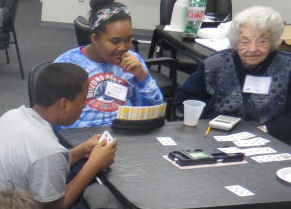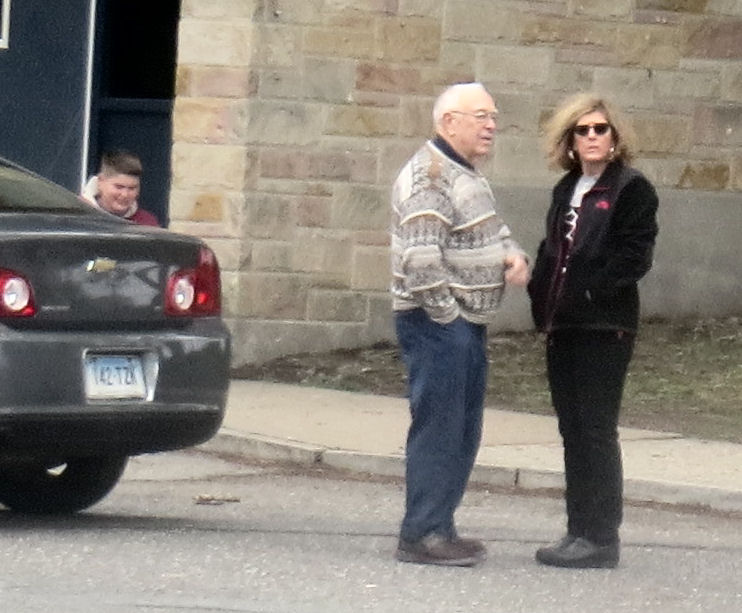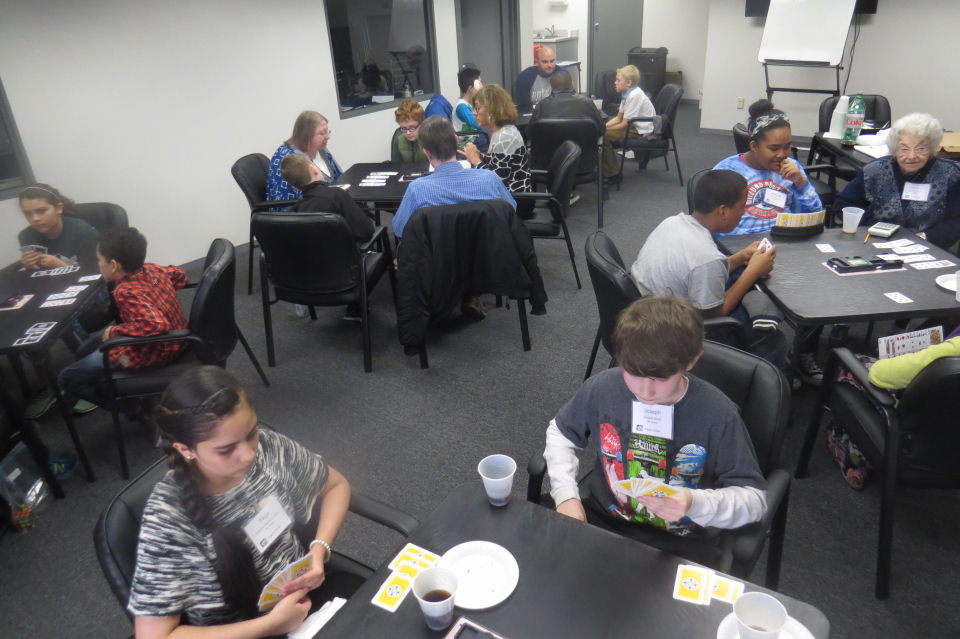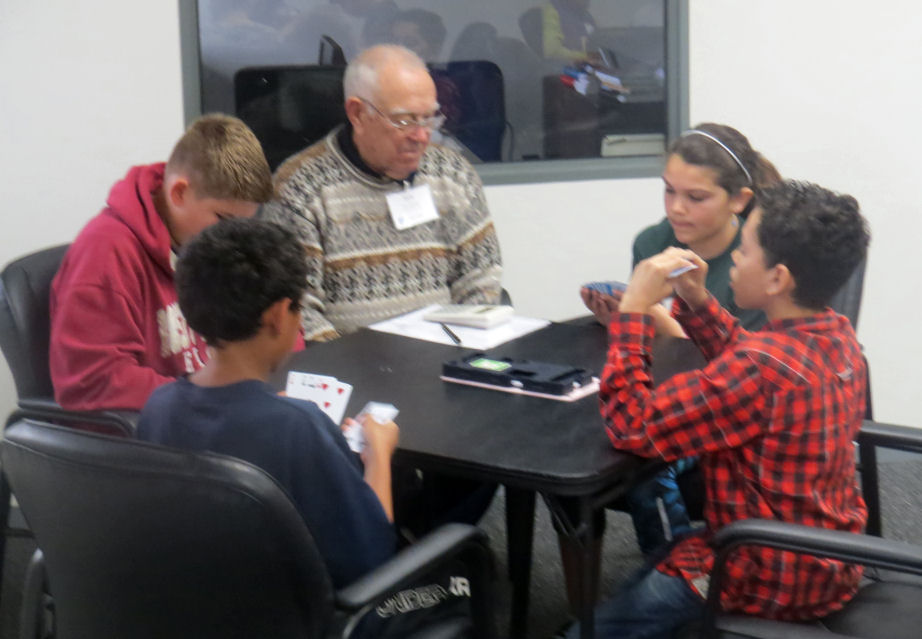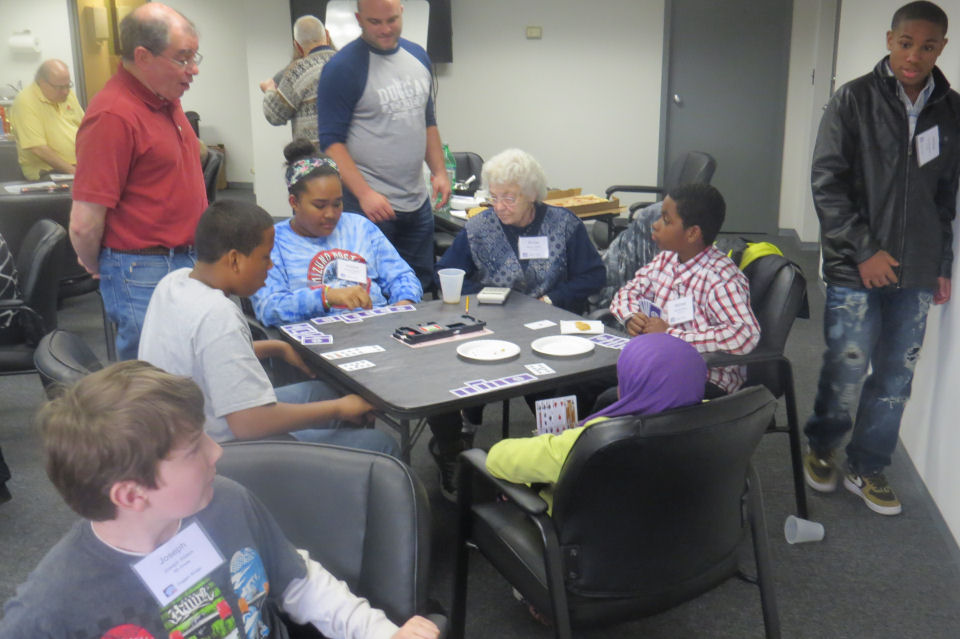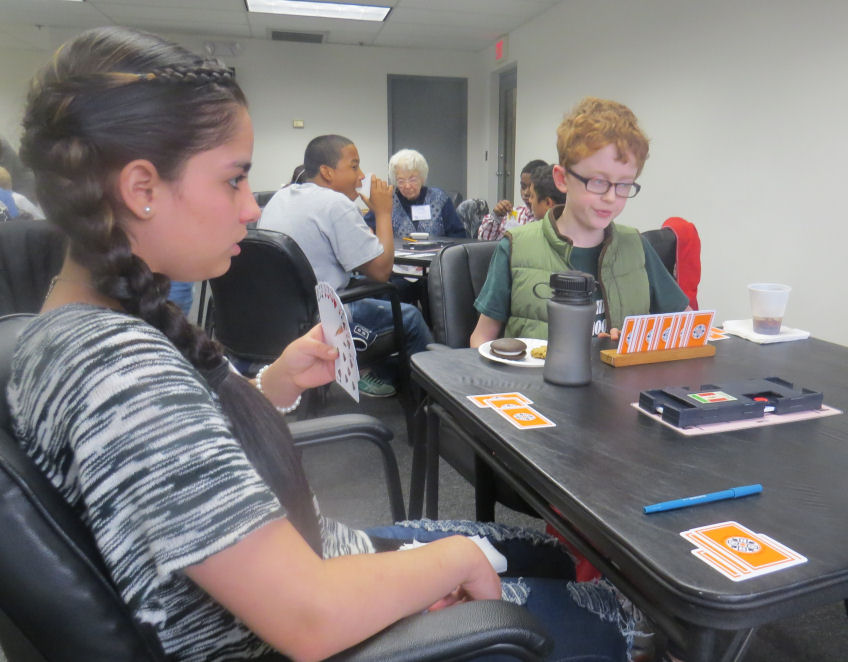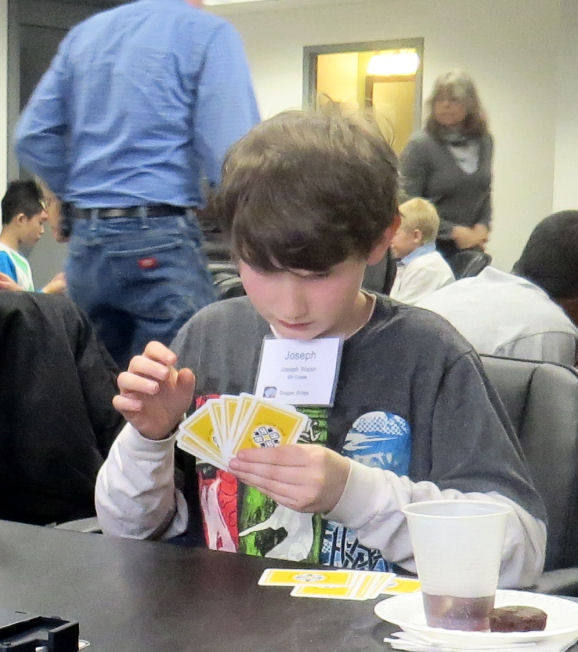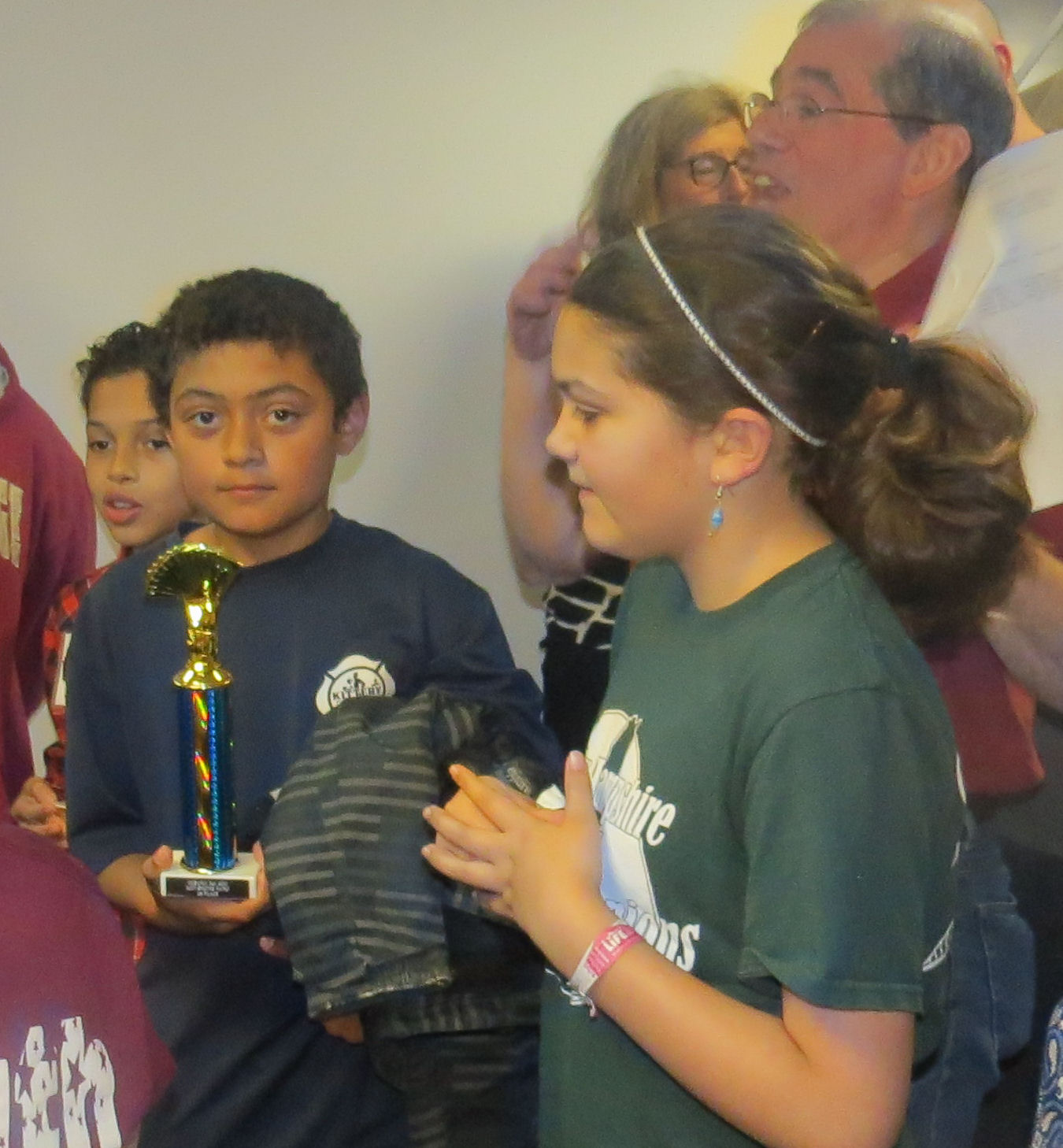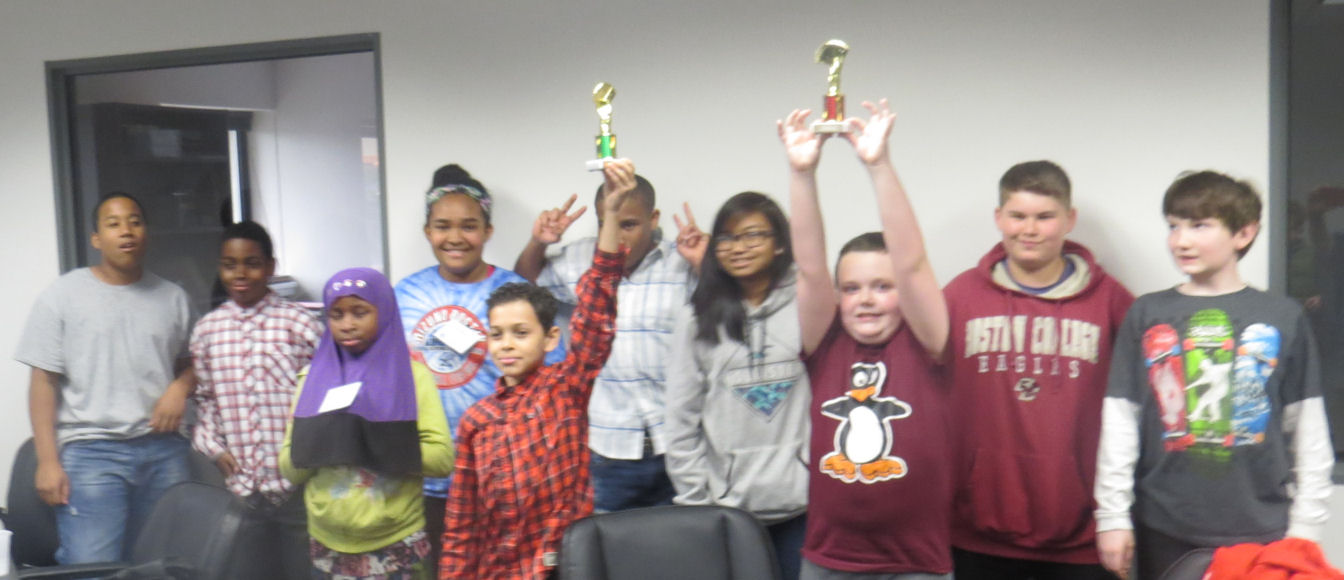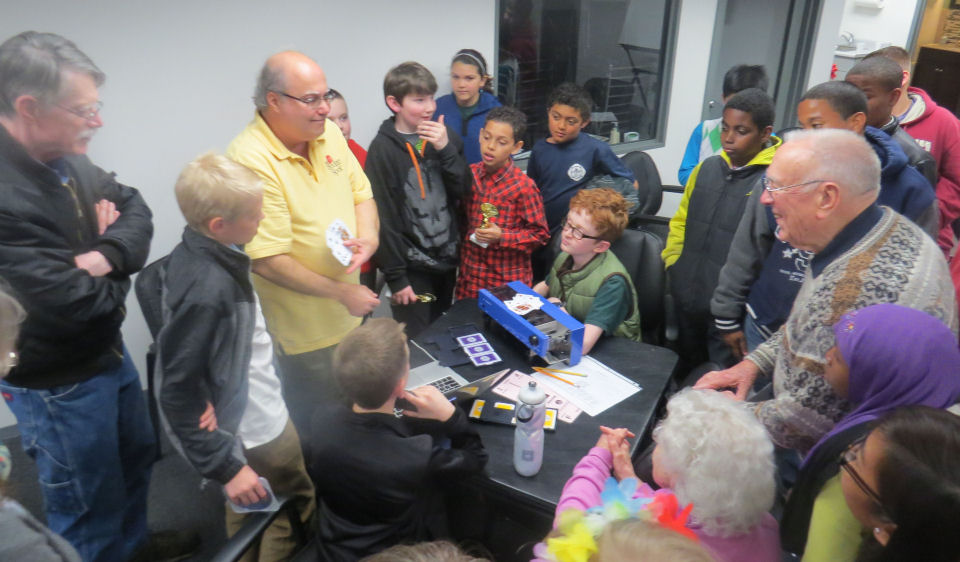
In January of 2016 the John J. Duggan Academy in Springfield, MA, began offering instructions in the game of bridge for a number of its 6th and 7th grade students as part of its "enrichment"[1] program. Bob Derrah organized the program and served as the chief instructor. He was helped by a group of volunteers — his wife Shirley, Maxine Cechvala, Barbara Jackson, Joan Barlow, and me and my wife Sue. Materials from the ACBL and from New England Youth Bridge, Inc., were used. The Derrahs and the Wavadas supplied card tables, cards, and duplicate boards. A critically important aspect of this arrangement was that the two-hour sessions were held during school hours on Thursdays, not after school.
Bridge is a complicated game, and most of the students had never played a trick-taking card game before. Some had never played cards at all. Bob decided to begin by teaching them how to play a simpler game, whist. When they had mastered some of the principles of cardplay, the game of Mini-Bridge was introduced. It uses the same system of contracts as the game played all over the world, but without bidding. The players announce their high-card points, and one of the players is chosen as declarer. After looking at the dummy, the declarer determines the contract based upon a chart.
The culmination of the project was participation in a Mini-Bridge tournament in Woburn, MA, on Saturday, May 8. Eleven players from Duggan made the trip in a van driven by Matt Sullivan, who is both assistant principal at Duggan and Bob and Shirley's grandson.
The plan was for all of us to meet at Duggan at 10 a.m. Sue and I were the last to arrive. We had forgotten that the Somers Road Race scheduled for that morning blocked off a section of Taylor Road that was part of our usual route from Enfield, CT, to Duggan. We had to improvise an alternate route, but we still arrived at 10 on the dot.
As usual, Matt needed to deal with some unexpected contingencies on his cell phone. Eventually he determined that the eleven students who were present comprised Duggan's squad for that day. Matt and the kids rode in the van; Shirley, Maxine, Sue, and Mike rode with Bob in his SUV.
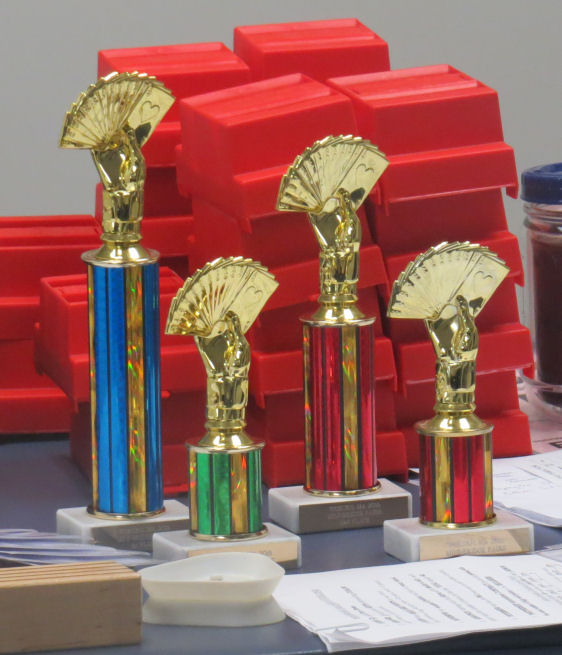
The instructors arrived in Woburn at the Bridge Spot, the largest bridge club in New England, about an hour or so before the scheduled starting time. Mike and Sue felt hungry. They ambled up to a nearby Subway and dined on reasonably good sandwiches.
The van full of students pulled into the parking lot a few minutes later. Eventually everyone rode the elevators to the second floor of the big office building that houses the Bridge Spot. An open game and a 299er game were scheduled for the same day. Dean Panagopoulos, the owner of the club had arranged for the students to play in a separate room that was just the right size for the group.
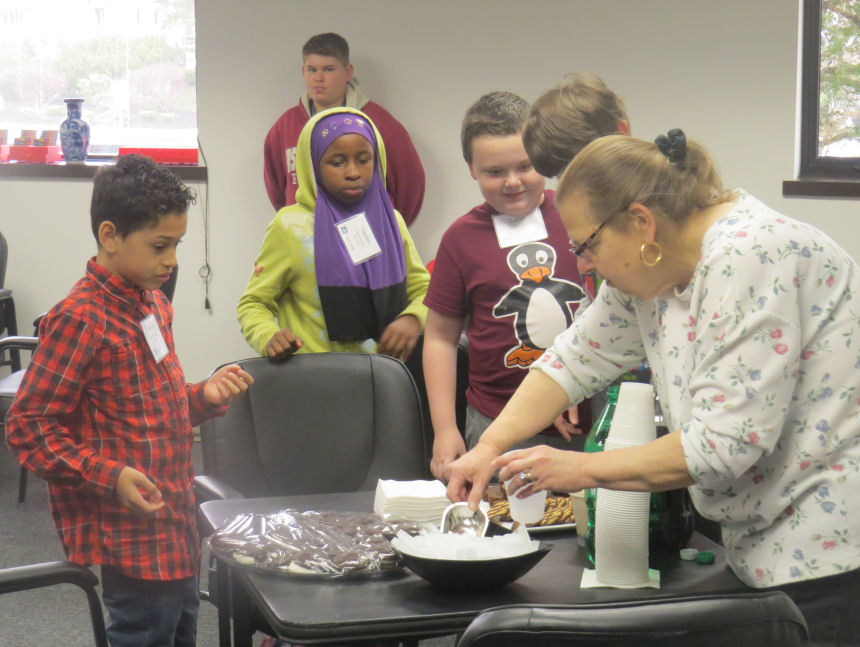
And what arrangements they were! Dean provided pizza, soda, and — it seemed — an endless supply of cookies to ensure that the energy levels of the youngsters never flagged. Lisa Allison[2] brought two pairs of young players from Durham, NH, as well as a tray of her world-famous moon pies. A pair from Newton, MA, also played. Kerome Mitchell had the misfortune of being paired with his assistant principal, Matt Sullivan. Matt had sat in for a few hands during the classes, but he had much less experience than any of the students.
Five two-board rounds of Mini-Bridge were scheduled. Seventeen kids (and Matt) participated. Sue and Maxine filled out the fifth table so that there was no sit-out. Of course, the results at that table did not count. Time constraints forced the last two rounds to be shortened to one board each. So everyone played eight hands.
The winners received thunderous applause, handsome trophies, a complimentary membership in the ACBL, and even masterpoints.
North-South:
1. Dmytro Shcherbakov and Ethan Situ from Newton.
2. Ryan Baillargeon and Jonathan Rivera from Duggan.
East-West:
1. Emma Pease and Chris Jernigan from Durham.
2. Joe Walsh and Dakota Smith from Duggan.
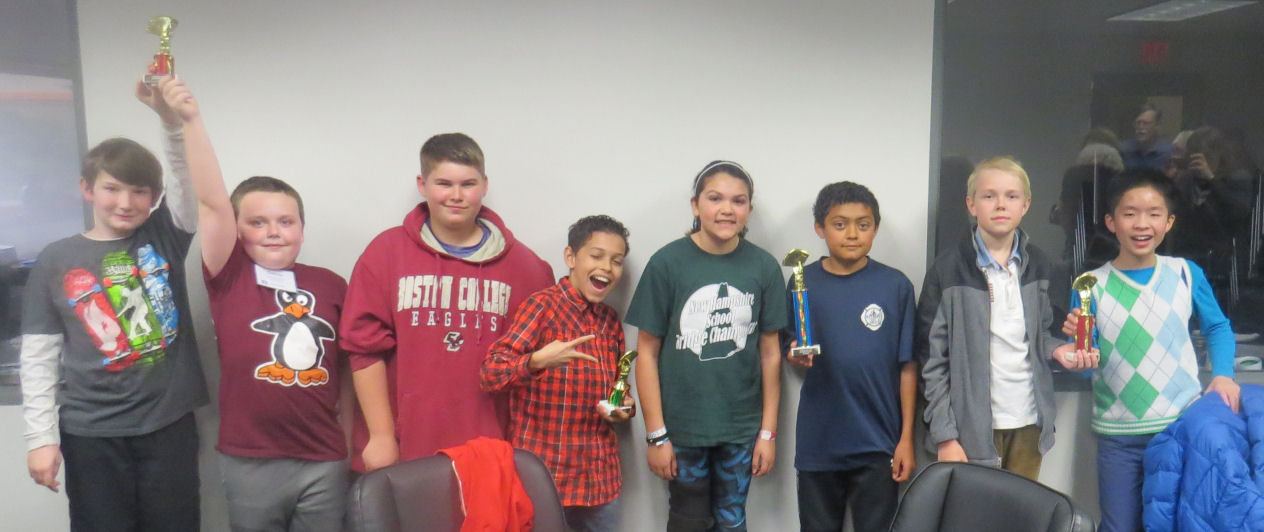
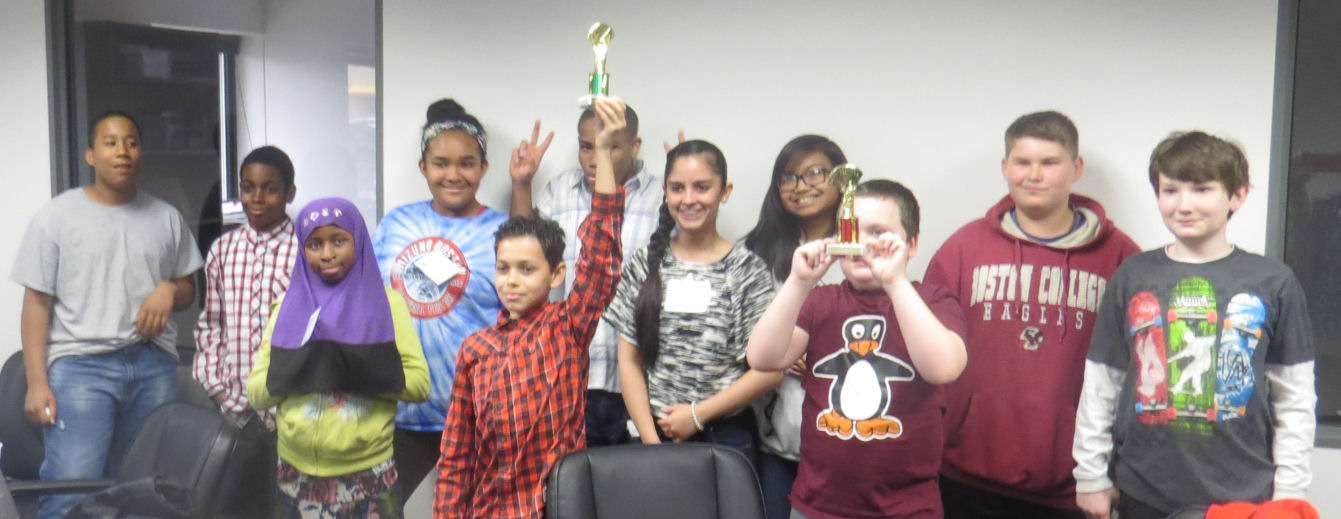
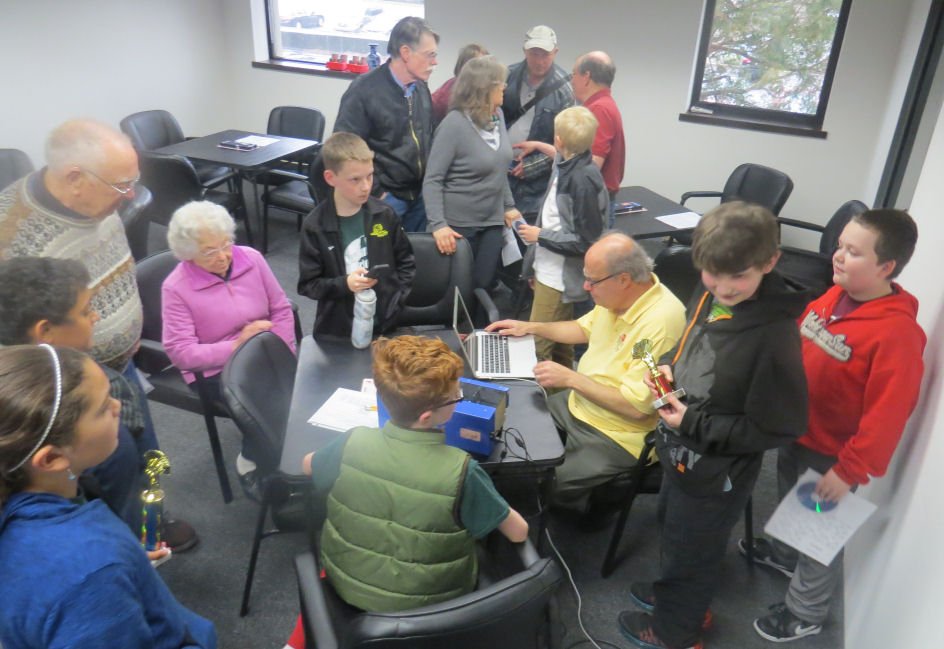
After the awards ceremony Dean brought his laptop and his dealing machine into the room in which the tournament was played. He showed us how the program on the laptop can associate a key number with an entire deal. It then instructed the blue dealing machine (connected by a USB cable) how to sort the cards and load the boards. The dealing machine took a photo of the corner of each card, read it, and moved the card in the right slot in the carrier. The entire process took a few seconds. "No way!" was heard around the room.
The officials at Duggan Middle School have told Bob how pleased they are with the results of the bridge program. They plan to continue it next school year. Bob is hopeful of finding other schools in the Springfield area interested in implementing the activity.
